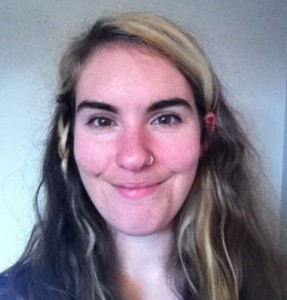![]() Ruth’s ethnographic research was based in Glasgow between 2015 – 2017, and explored the everyday home-making practices of migrant, refugee and asylum-seeking women.
Ruth’s ethnographic research was based in Glasgow between 2015 – 2017, and explored the everyday home-making practices of migrant, refugee and asylum-seeking women.
My PhD research fieldwork consisted of ethnographic research in which I used participatory photographic methods to explore the everyday home-making practices of migrant, refugee and asylum-seeking women living in Glasgow. I have been supervised by Dr Lisanne Gibson in the School of Museum Studies at the University of Leicester, and funded by the Arts and Humanities Research Council (AHRC) and Glasgow Life as part of the Understanding Everyday Participation – Articulating Cultural Values (UEP) project.
My research draws on a range of theoretical perspectives from the social sciences to untangle to multiple and complex ties between people and place in the social phenomena of migrant home-making. I worked alongside 20 women from a wide variety of migrant backgrounds to understand the ways in which their everyday practices engaged with objects, people and places to negotiate their understandings and experiences of home in the context of migration. In particular I looked at the impact of legal migrant status and gender upon these processes. The method of the photo-elicitation interview informed the data-generation technique, as participants themselves generated the data and we discussed the meanings embedded within each image together in the interview. I am particularly interested in the importance of connecting subjective experiences of migrant-home-making with wider social and structural factors which shape these experiences, and firmly believe that an intersectional approach to research is imperative if we are to make significant gains in knowledge production.
Previous research carried out during my Master’s in visual anthropology explored the relationship between a localised approach to learning about heritage and craft practice and wellbeing in the post-industrial city of Bradford. These themes sparked my interest in critical heritage studies, urban studies and migration, and the training in visual methods influenced the methodological approach underpinning this PhD. Stemming from these areas of interest, it has also been important to my PhD project to address issues of scale i.e. how might small-scale projects be able to feed back into the larger scale policies which impact upon provisions, funding, resources etc. within the city. I am currently working on a report for the collaborative partners Glasgow Life, which will provide information about key areas of participation which are important to migrants, and the barriers to certain spheres of participation as a result of their legal status.
My academic career leading up to this PhD has laid the ground for how I have approached this research, in that I believe in attending as far as possible to a collaborative, and creative methodological process when working with participants. My skills in this field lent themselves to a research practice which attempts to address issues of power which permeate participation in the city on a wide variety of axes (gender, socio-economic status, ethnicity to name but a few). Ultimately, my work seeks to understand how we can work with participants to understand the context in which their everyday participation, home-making practices and cultural value are embedded and articulated.
 I have kept a blog following the developments of my research project which you can find here
I have kept a blog following the developments of my research project which you can find here
